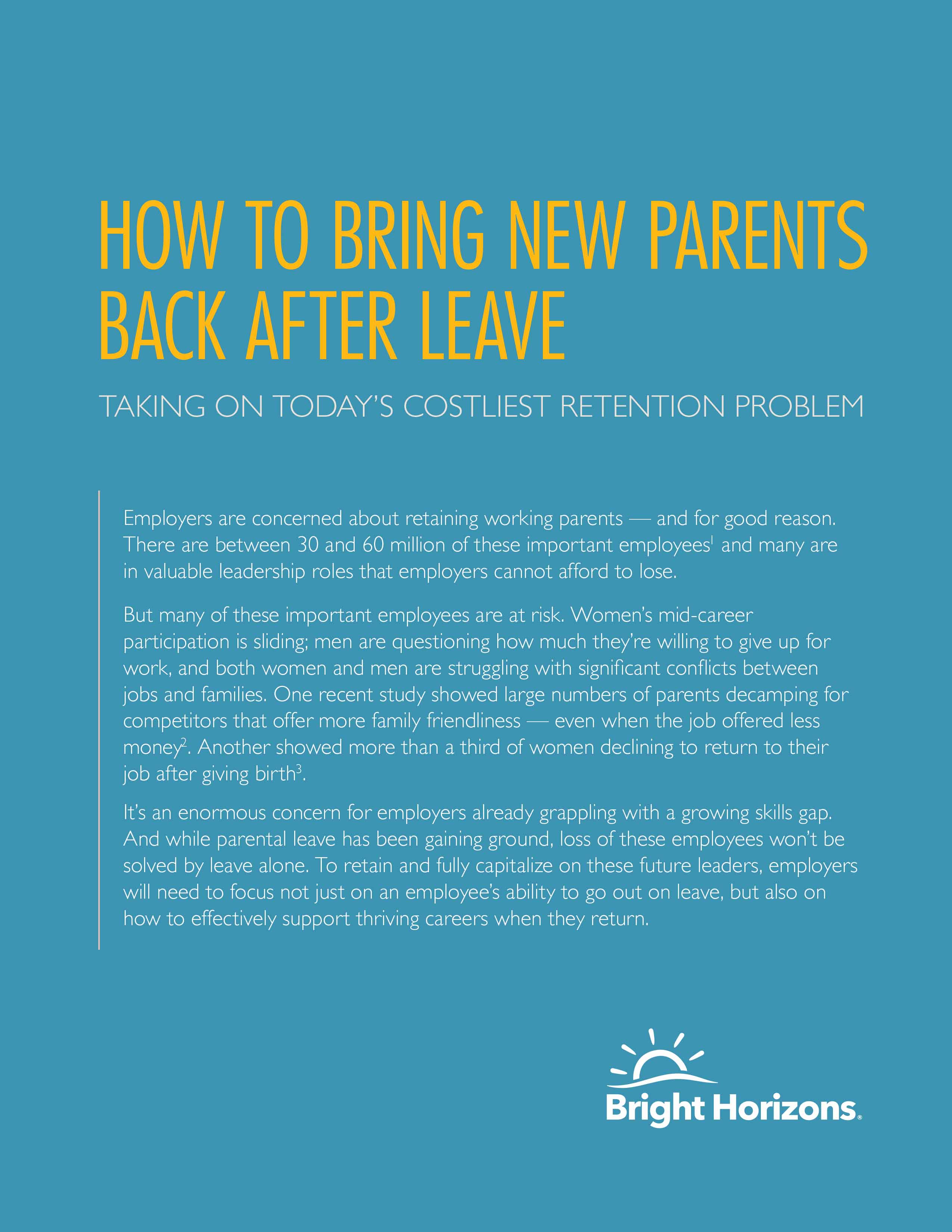"Everyone who doesn't have kids is held hostage - extra work, an unproductive co-worker - without getting the same breaks to pursue their own interests."
"New parents are often bad employees."
"If you're pregnant you should expect to get passed up for a promotion."
Ouch.A Workforce at Odds with Itself
What's immediately striking about the above is that a) clearly working parents' fears about being judged post baby are well-founded; and b) the sentiments are completely at odds with MFI parents' own reported commitment to their careers.The question then is...why? Why do people assume new parents will make bad employees? Why are colleagues so wary? Why, if managers believe (as they told our Modern Family Index in 2015) that working parents are among the best performers, are parents simultaneously feeling downgraded as second rate?
The answer, it may turn out, is that employees without children aren't feeling supported either.
Parents versus Non-Parents: Notes from the Cubes
More than a few childless Slate commenters felt their responsibilities weren't considered equal to parenting jobs. "When you take your PTO, you say it's for your kid's this-or-that, everyone's cool," said one. "When child-free people take their PTO, people raise their eyebrows, wondering what they're up to, which implies that their time is less important and therefore, they can pick up more at work."Others noted parents' use of vacation in many small chunks to deal with school holidays or sick days (versus for an actual vacation) and how that left coworkers with the impression they're always away. "Colleagues with kids are always given more of a pass when they need time out of the office," said one.
Combined, the two perceptions create a workforce at odds with itself: parents (as our 2014 MFI said) feeling they need to use paid time off to care for families or risk being fired; the childless feeling their responsibilities aren't equally respected and that in the absence of children, they're expected to work double time for missing parents.
The Answer: Policies that Work for Everyone
The myth, as Bright Horizons Chief Culture Officer Dan Henry pointed out, is that family-friendly policies only support working parents. In fact, done right, they should support everyone. Asked about child care in our Lasting Impact study, more than half of employees without children said the presence of child care factored into their job choice -- likely because it signaled a positive culture.Need more? Roughly three quarters of employees who called their employer a Dream Company said supervisors truly cared about the demands of work on personal lives, and made them feel comfortable bringing up personal (not just family) issues. Such policies benefit employees with children and without. Not surprisingly, they also help Dream Companies clean up in other ways that matter, including engagement and reduced turnover.
"There are lots of good examples of employers who really get this," Our CEO Dave Lissy told NECN in a televised interview about the MFI in December. "That's what the opportunity is out there for employers who really want to be able to be successful."
Learn more in our 2016 Modern Family Index ebook, here.





